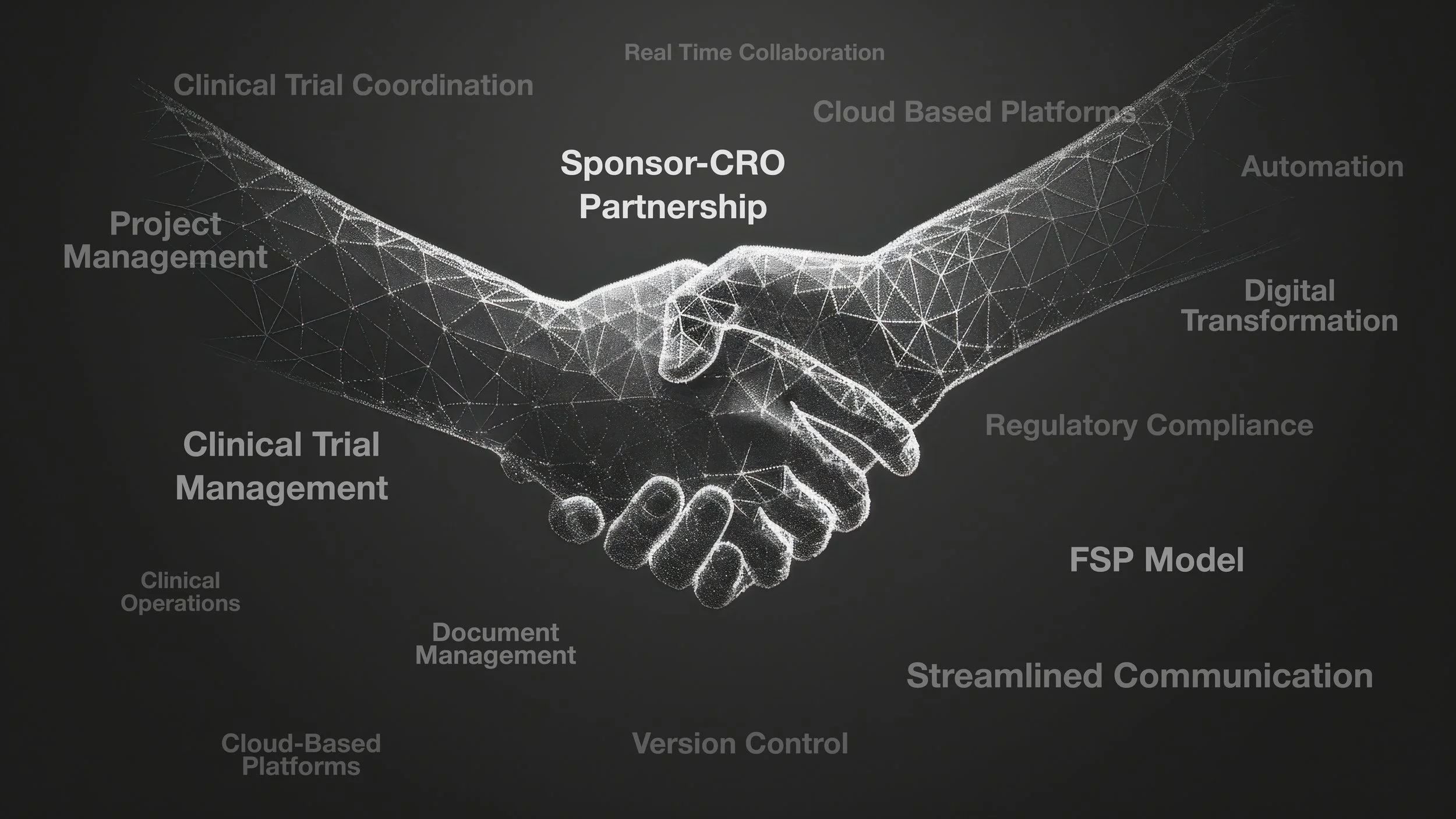Ever wonder what fuels the success of a clinical trial? It boils down to collaboration—bringing together diverse teams of sponsors and Contract Research Organizations (CROs), often spanning multiple geographies. Sponsors take the lead by setting the course, securing funding, and ensuring that every regulatory requirement is met. They are responsible for designing the trial protocol, selecting sites, and making critical decisions to keep the trial on track.
On the other hand, CROs offer specialized expertise in managing the intricate processes involved in executing a trial. These teams include project managers, research assistants, site contract managers, quality managers, clinical research associates, clinical trial assistants, regulatory affairs managers, heads of clinical operations, data managers, statistical programmers, and biostatisticians. Each of these roles is vital in ensuring a successful trial outcome.
Rising Complexity and Shifting Models in Clinical Trials
As the pharmaceutical industry continues to evolve, clinical trials are becoming increasingly complex. The globalization of R&D has introduced new challenges, with 51% of drug developers citing trial complexity as a significant hurdle and 46% identifying regulatory demands as a close second, according to a survey by Thermo Fisher Scientific. To manage these growing demands, pharmaceutical companies have increasingly turned to Contract Research Organizations (CROs), with nearly three out of four clinical trials now managed by these organizations.
Traditionally CROs have offered full-service outsourcing (FSO) models to pharmaceutical and biotechnology companies to support clinical trial operations. However, a significant shift toward functional service provider (FSP) models has been gaining traction. This shift is not just a trend; it’s becoming the new norm. The top 10 pharmaceutical companies have adopted FSP models, and nearly half of the companies ranked 11th to 20th are using a combination of FSP and FSO models. This change is being driven by several market forces, including a focus on bolt-on M&A strategies, the need to reduce costs, improve operational efficiency, decrease cycle times, provide specialized services, and maintain more strategic control over clinical trials.
Technology: The Key to Improved Clinical Trial Coordination
As the FSP model becomes more widespread, both sponsors and CROs are increasingly relying on technology to streamline clinical trial operations. While CROs traditionally made most technology-related decisions, now sponsors are also taking a more active role in selecting and leveraging technological solutions. This shift towards integrated platforms is crucial for fostering collaboration and ensuring efficient trial coordination.
This is where cloud-based platforms like Cloud ConcinnityⓇ play a crucial role. By streamlining workflows and enhancing communication, these platforms enable more efficient collaboration between sponsors and CROs. Cloud technology facilitates smoother interactions, aligning all stakeholders and driving better outcomes throughout the trial process.
Explore our blog to learn how cloud-based platforms and automation are revolutionizing clinical trial coordination.
A Case in Point: Tackling Inefficient Clinical Trial Collaboration
To highlight the impact of collaboration and technology, consider the challenge faced by one of our customers: inefficient document management and communication delays. Their trial leaders struggled with a high volume of emails and multiple document versions, making it difficult to track changes and maintain version control across platforms. This inefficiency significantly impacted their overall trial timelines.
The Solution: Streamlined Collaboration and Document Management
We provided a real time collaboration platform that addressed these challenges by enabling better communication and simplifying document management. The platform’s key features included:
Centralized Document Repository: All documents were consolidated into a single, secure location, eliminating the need to manage multiple versions across different platforms
Real-Time Collaboration: Stakeholders could now collaborate on documents simultaneously, ensuring real-time updates and reducing confusion caused by conflicting versions
Version Control: Automatic version tracking ensured that the most recent document was always accessible, minimizing errors due to outdated information
Role-Based Access: With secure, role-based permissions, only authorized users could view or modify documents, improving document integrity and confidentiality
The Impact: Improved Efficiency and Accuracy
The results were immediate. With less time spent on document management and email exchanges, teams were able to focus on more critical tasks. The platform's role-based access and integrated signature requests sped up the approval process, ensuring that only authorized personnel could review and approve documents swiftly.
Moreover, by reducing clerical errors and ensuring clear audit trails, the platform simplified documentation processes. This created more accurate records and a reliable, efficient audit process.
Closing Thoughts
By fostering collaboration among diverse opinion leaders, our platform played a pivotal role in transforming the clinical trial management system. Not only did it improve coordination, but it also accelerated trial timelines, ensuring that different perspectives were integrated seamlessly into the process.
The importance of collaborative trial management cannot be overstated—especially in today’s increasingly complex and competitive landscape. As clinical trials become more intricate, fostering collaboration across various experts is essential for achieving breakthroughs and maintaining a competitive edge. Technology, like Cloud Concinnity, enables this collaboration, making clinical trials more efficient, responsive, and aligned with the industry's evolving needs.
In the world of clinical trials, effective collaboration isn’t just a nice-to-have—it’s a must for success.

